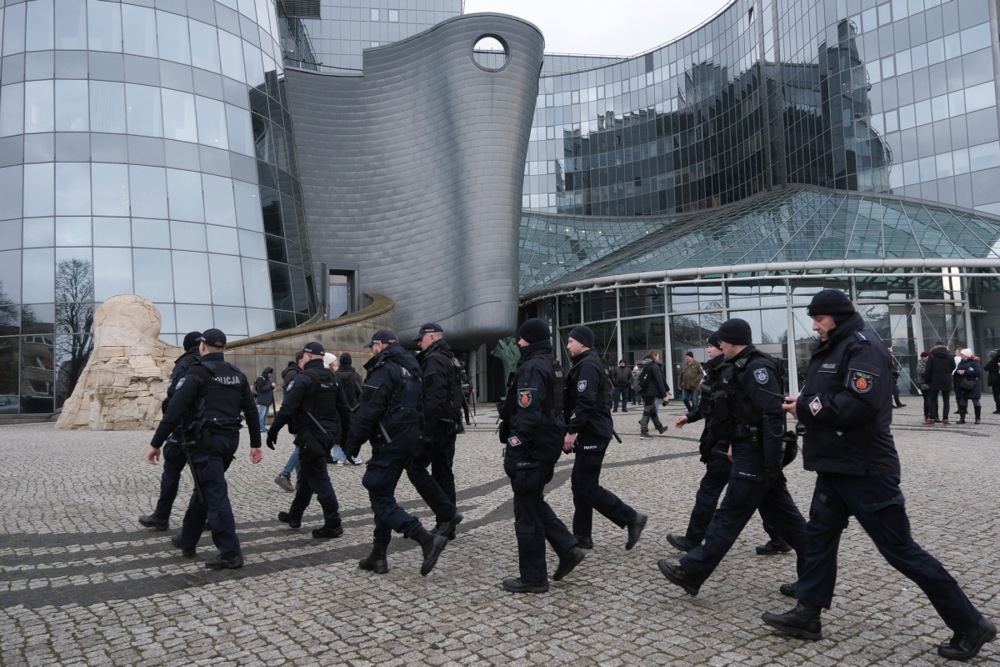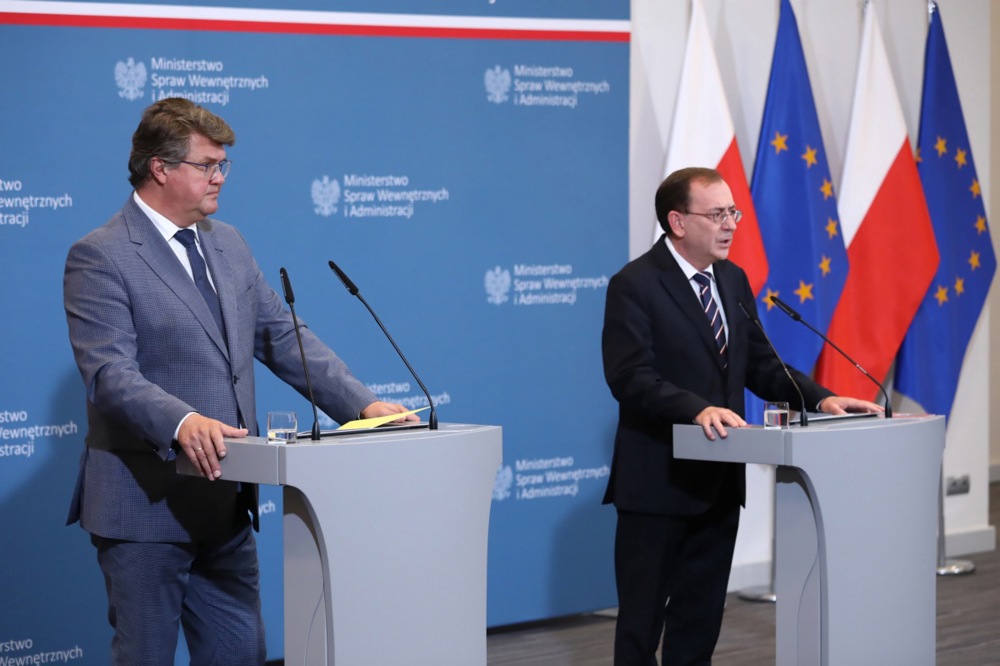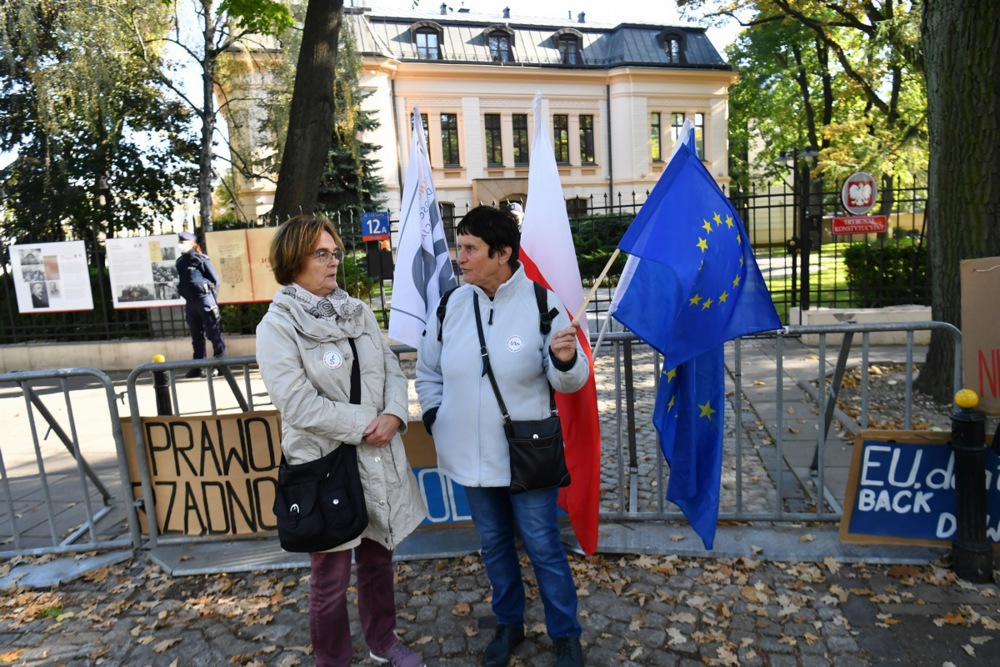A Warsaw court has overturned decisions by the Polish President, the Supreme Court and the Constitutional Tribunal by ordering former interior minister Mariusz Kamiński MP and Maciej Wąsik MP to be detained pending prison sentences.
The court’s move on January 8 came despite an inconclusive meeting held on the same day between President Andrzej Duda, who had pardoned the pair in 2015 and so insists they are still MPs, and the Speaker of Parliament Szymon Hołownia, a supporter of the new Tusk Government.
Hołownia last week took the decision to render the parliamentary mandates of the two PiS MPs null and void.
The Speaker’s decision was based on a court ruling that the President’s pardon, which is the constitutional prerogative of the Head of State, was invalid because it took place before full judicial process involving the two MPs had been completed.
A Warsaw court in December last year sentenced Kamiński and Wąsik to two years in jail and barred them from holding public office. Both denied wrongdoing.
That reaffirmed a conviction secured in 2015 for abuse of power regarding an ultimately unsuccessful “sting” in 2007 against then-deputy prime minister and agrarian populist party leader, the late Andrzej Lepper, involving a land deal.
Duda pardoned Kamiński and Wąsik – who had previously appealed their 2015 convictions. Last year, one of the chambers of the Supreme Court ruled that was invalid because due legal process had not been completed and the case was returned to the Court of Appeal, which upheld the original convictions.
That court ruling has been challenged by the Constitutional Tribunal, or court, which sided with the President, but that court is regarded as being under the influence of the former ruling Conservative PiS party as it nominated all the judges currently serving there.
The Supreme Court, made up of PiS and other government appointees, last week overturned the Speaker’s ruling even though two different chambers of the court, Labour and Supervisory, have taken different positions on the issue.
Małgorzata Manowska, appointed by Duda, is First President of the Supreme Court. She responded to Hołownia sending the matter of the two MPs’ mandate expiration to the Labour Chamber by accusing him of acting “in violation of the law” and cited what she said was an attempt by the legislature to interfere in due judicial process.
In an interview with portal Onet.pl, Manowska also said she feared that the present Government would “follow the Turkish option for dealing with the judiciary” by forcibly removing judges it does not wish to recognise from the courts. That, she said, would also be challenging the President’s power of judicial appointments, which the Constitution bestows on that office alone
The Tusk Government argues that the European Court of Justice and the European Court of Human Rights have previously found some chambers of the Supreme Court illegitimate because they were nominated by Polish parliament rather than by the judges themselves – as had been the case until judicial reforms brought in by the PiS.
Given the current disagreements, a major confrontation looms as the two MPs refuse to recognise Hołownia’s decision and insist they will enter the parliamentary building to represent their constituents.
If they are in custody, of course, that will not be possible.
Marcin Mastalerek, a chief aide to Duda, said that should the two PiS MPs actually be incarcerated – despite being pardoned by the President – it would mean Poland will be home to political prisoners for the first time since the end of Communist rule.





